I have a MethodQueue class which enqueue method in queue array and execute them. The tricky part here is that I want to execute one job at a time and next job has to start after some x seconds after previous completed to avoid exceeding request within no time.
So I implemented MethodQueue class like this.
class MethodQueue {
private queue: (() => Promise<any>)[] = [];
private isExecuting = false;
async enqueue(method: () => Promise<any>): Promise<void> {
this.queue.push(method);
if (!this.isExecuting) {
this.executeNext();
}
}
private async executeNext(): Promise<void> {
if (this.isExecuting) return;
this.isExecuting = true;
const method = this.queue.shift();
if (method) {
await method();
this.isExecuting = false;
setTimeout(() => this.executeNext(), 1000);
} else {
this.isExecuting = false;
}
}
}
And I have SendQueue class with static methods that I use from other files.
export class SendQueue {
private static methodQueue = new MethodQueue();
public static async m1(param1: string, param2: number): Promise<string> {
return new Promise<string>((resolve) => {
SendQueue.methodQueue.enqueue(async () => {
const result = await Send.m1(param1, param2);
resolve(result);
});
});
}
public static async m2(param1: string): Promise<string> {
return new Promise<string>((resolve) => {
SendQueue.methodQueue.enqueue(async () => {
const result = await Send.m2(param1);
resolve(result);
});
});
}
public static async m3(param1: string, param2: boolean): Promise<string> {
return new Promise<string>((resolve) => {
SendQueue.methodQueue.enqueue(async () => {
const result = await Send.m3(param1, param2);
resolve(result);
});
});
}
}
Finally I have Send class which has actual code
class Send {
public static async m1(param1: string, _param2: number): Promise<string> {
console.log(`Done ${param1}: ${new Date().getHours()}:${new Date().getMinutes()}:${new Date().getSeconds()}:${new Date().getMilliseconds()}`);
return "result from m1";
}
public static async m2(param1: string): Promise<string> {
console.log(`Done ${param1}: ${new Date().getHours()}:${new Date().getMinutes()}:${new Date().getSeconds()}:${new Date().getMilliseconds()}`);
return "result from m2";
}
public static async m3(param1: string, _param3: boolean): Promise<string> {
console.log(`Done ${param1}: ${new Date().getHours()}:${new Date().getMinutes()}:${new Date().getSeconds()}:${new Date().getMilliseconds()}`);
return "result from m3";
}
}
When I am executing with multiple request Its hit and miss with multiple awaits between calls
(async () => {
SendQueue.m1("m1", 1);
SendQueue.m2("m2");
SendQueue.m3("m3", true);
await new Promise((resolve) => setTimeout(resolve, 1000));
SendQueue.m1("m4", 1);
await new Promise((resolve) => setTimeout(resolve, 2000));
SendQueue.m2("m5");
await new Promise((resolve) => setTimeout(resolve, 2500));
SendQueue.m3("m6", true);
await new Promise((resolve) => setTimeout(resolve, 1000));
SendQueue.m1("m7", 1);
SendQueue.m2("m8");
SendQueue.m3("m9", true);
await new Promise((resolve) => setTimeout(resolve, 13000));
SendQueue.m1("m10", 1);
await new Promise((resolve) => setTimeout(resolve, 1000));
SendQueue.m2("m11");
SendQueue.m3("m12", true);
await new Promise((resolve) => setTimeout(resolve, 1000));
SendQueue.m1("m13", 1);
})();
Output:
What is the problem with my code?
